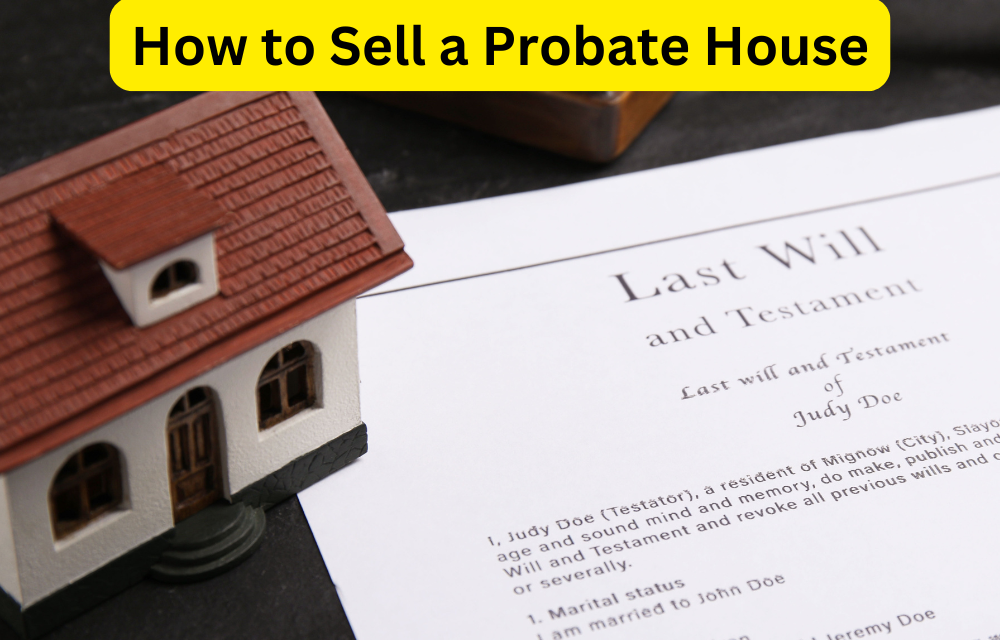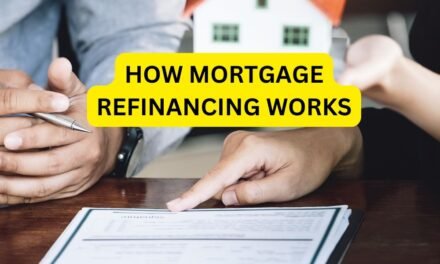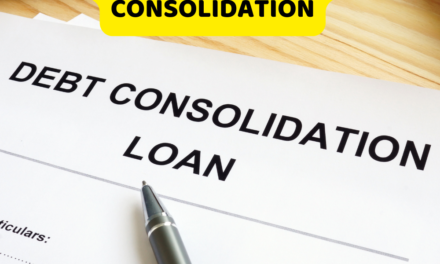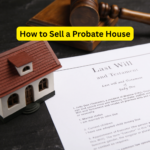Selling a probate house can seem daunting, especially for those unfamiliar with the probate process. However, with the right knowledge and guidance, you can navigate this complex situation smoothly. Whether you’re looking to sell a house in probate, sell a property after probate, or avoid issues such as foreclosure homes, this comprehensive guide will walk you through everything you need to know. From understanding the probate sale process to handling potential foreclosure, we’ll cover every aspect of how to sell a house after probate.
What Is a Probate House?
A probate house refers to a property owned by a deceased individual that must go through the legal process known as probate. This process involves the court supervising the distribution of the deceased’s estate to the heirs or beneficiaries. During probate, the court ensures that debts are paid, and the remaining assets are distributed according to the will or the state’s laws of inheritance if there is no will.
If you’re tasked with selling a house during probate, it’s important to understand that you don’t have complete freedom to sell the property like a typical home sale. There are legal steps that must be followed to ensure the transaction is legitimate and fair for all heirs.
Why Sell a House After Probate?
There are several reasons why someone may decide to sell a house after probate. These include:
- Settling debts: The deceased may have left unpaid debts that need to be settled. Selling the property can help raise the necessary funds.
- Multiple heirs: When a house is inherited by several people, it may be simpler to sell the property and divide the proceeds rather than trying to manage or co-own it.
- Avoiding foreclosure: If the property has an outstanding mortgage or is in danger of becoming a foreclosed home, selling may be necessary to prevent foreclosure.
- Maintenance: Keeping an inherited house can be costly in terms of property taxes, upkeep, and insurance. Selling might be the best option to avoid ongoing expenses.

How to Sell a Probate House
The Probate Process: A Step-by-Step Overview
Before diving into how to sell a house in probate, it’s crucial to understand the probate process itself. Here’s a general overview:
1. File a Petition
When someone passes away, the executor or administrator of the estate must file a petition with the probate court. This begins the legal process that oversees the management of the deceased’s assets. If the deceased left a will, the court validates it during this stage.
2. Appoint an Executor or Administrator
The court appoints an executor (if there’s a will) or an administrator (if there’s no will) to handle the estate. This person is responsible for managing the estate, paying debts, and distributing assets to beneficiaries.
3. Inventory the Estate
The executor or administrator must create an inventory of the deceased’s assets, including any properties, bank accounts, and personal belongings. This inventory is submitted to the court.
4. Notify Creditors
Creditors must be notified of the probate proceeding so they can submit claims against the estate. The executor is responsible for ensuring that legitimate debts are paid.
5. Distribute Assets
Once debts are settled, the remaining assets, including the house, are distributed to the beneficiaries.
6. Sell the House (if needed)
If the house needs to be sold, either to pay debts or divide the inheritance, the probate court must approve the sale. This is known as a probate sale.

How to Sell a House During Probate
1. Get Court Approval
Before selling a probate house, the executor or administrator must seek approval from the probate court. The court oversees the sale to ensure it’s conducted fairly and in accordance with the law. In some states, you may need to get approval for the final sale price as well.
2. Hire a Probate-Experienced Realtor
Not all real estate agents are familiar with the intricacies of selling a probate property. Hiring a realtor with experience in probate sales can help ensure that the sale process goes smoothly and that all legal requirements are met.
3. Determine the Home’s Value
A key part of selling a probate house is determining its fair market value. You can either hire a professional appraiser or ask your realtor for a comparative market analysis (CMA). In some cases, the court may require an official appraisal to ensure the home isn’t sold for less than its worth.
4. Prepare the Home for Sale
Selling a probate property often involves getting the house in good condition to attract potential buyers. Depending on the state of the house, you may need to make repairs or renovations, clean the property, or stage it to increase its appeal. However, major upgrades might not always be necessary, as many buyers interested in probate properties are looking for investment opportunities.
5. Market the Property
Just like any other home sale, marketing is crucial to attracting the right buyers. Your realtor should list the property on multiple real estate platforms and use effective marketing strategies to reach potential buyers. Probate homes are often sought after by investors looking for housing foreclosures for sale, so targeting this market can be beneficial.
6. Receive Offers and Notify the Court
Once offers are received, the executor reviews them and chooses the best one. However, in most states, the sale cannot be finalized without court approval. The court may require a formal hearing where the sale is confirmed.
7. The Confirmation Process
In some cases, the court may hold a public auction to allow other buyers the chance to outbid the original offer. This helps ensure the estate receives the highest possible price. Once the sale is confirmed by the court, the probate process continues to the closing stage.
Avoiding Foreclosure on a Probate House
In some cases, the property in probate might be at risk of becoming a foreclosure home due to an outstanding mortgage. Here are steps to take to avoid foreclosure homes during probate:
1. Keep the Mortgage Current
If there is an outstanding mortgage on the probate property, it’s crucial to continue making mortgage payments. Falling behind can result in the lender initiating foreclosure proceedings, which could result in the house becoming a foreclosed home.
2. Communicate With the Lender
If the estate cannot keep up with mortgage payments, the executor should communicate with the lender. In some cases, the lender may be willing to offer a forbearance or loan modification to give the estate time to settle and sell the house before foreclosure occurs.
3. Sell the Property Before Foreclosure
If foreclosure seems imminent, selling the house quickly may be the best way to prevent the property from becoming a foreclosed home. Probate homes, like foreclosure homes, tend to attract buyers looking for a good deal. Pricing the home competitively and working with a realtor can speed up the sale process.

Selling a House After Probate: Steps to Finalize the Sale
Once probate is complete, and the court has authorized the sale, it’s time to finalize the process of selling the house after probate.
1. Sign the Purchase Agreement
Once the court approves the sale, the executor can sign the purchase agreement with the buyer. This contract outlines the terms of the sale, including the sale price, closing date, and any contingencies.
2. Distribute the Proceeds
After the sale is complete and any debts are paid, the remaining proceeds from the sale are distributed among the heirs or beneficiaries.
3. Close the Sale
The final step involves closing the sale. During closing, all necessary documents are signed, funds are transferred, and the title of the property is transferred to the new owner. The executor must ensure all legal paperwork is completed to finalize the sale.
Selling Probate Homes vs. Foreclosed Homes
Probate homes and foreclosed homes share some similarities, but they differ in important ways. Both types of properties can represent good investment opportunities for buyers, but their sales processes are distinct.
Probate Homes
- Court Oversight: Probate sales require court oversight to ensure that the sale is fair and legal. This process can take longer than a standard home sale.
- Potential Bargains: Probate homes are often sold at a lower price because the estate needs to liquidate the property quickly, similar to housing foreclosures for sale.
- Multiple Heirs: In probate, the property may have multiple heirs, adding complexity to the sale.
Foreclosed Homes
- Lender-Owned: A foreclosure home is owned by the lender after the previous homeowner defaulted on their mortgage.
- Auction Sales: Foreclosed homes are often sold at auctions where buyers can bid for the property.
- As-Is Sales: Foreclosed homes are typically sold “as is,” which means buyers must be prepared to handle repairs or renovations themselves.
Benefits of Selling a Probate House
While the probate process can be more complex than a regular home sale, there are several benefits to selling a house during probate:
1. Resolve Estate Debts
Selling the house can help settle outstanding debts and provide a sense of closure to the estate. This is particularly important if the estate includes mortgages or other obligations.
2. Fair Distribution of Assets
Selling a probate property allows the proceeds to be divided fairly among heirs, reducing the chance of disputes and ensuring everyone receives their inheritance.
3. Prevent Foreclosure
If the property has a mortgage, selling the house can prevent it from becoming a foreclosure home. By selling the home quickly, you can avoid the negative consequences of a housing foreclosure.
4. Attract Motivated Buyers
Many investors and homebuyers actively search for probate sales and housing foreclosures for sale, as they often represent excellent value. These buyers are typically motivated and ready to close deals quickly, which can make the selling process smoother.
Final Thoughts: Navigating the Sale of a Probate House
Selling a house in probate can be complex, but with the right approach, it can also be a smooth and efficient process. Whether you’re selling a house after probate to settle debts, prevent a foreclosure, or distribute assets fairly among heirs, understanding the steps involved is essential.
By working with a probate-experienced realtor, preparing the home for sale, and following court procedures, you can successfully sell a probate property and bring closure to the estate. If foreclosure is a concern, acting quickly and communicating with lenders can help avoid the property becoming a foreclosed home.
For home sellers, probate and foreclosure represent different challenges, but with knowledge and planning, both processes can result in a successful sale that benefits all parties involved.
Frequently Asked Questions
FAQ 1: What is a probate house?
A probate house is a property that is part of a deceased person’s estate and is subject to the probate process, which involves validating the deceased’s will and settling debts before distribution to heirs.
FAQ 2: How do I initiate the sale of a probate house?
To initiate the sale, you must first obtain court approval after filing for probate. Once approved, you can list the property for sale, typically through a real estate agent experienced in probate transactions.
FAQ 3: Are there any special considerations when selling a probate house?
Yes, sellers must ensure compliance with local laws regarding disclosures and may need to provide documentation proving authority to sell the property as an executor or administrator of the estate.
FAQ 4: Do I need an attorney to sell a probate house?
While it is not legally required, hiring an attorney experienced in probate law is advisable to navigate complex legal requirements and protect your interests throughout the process.
FAQ 5: How long does it take to sell a probate house?
The timeline can vary significantly based on jurisdiction and market conditions but generally ranges from several months to over a year due to court approvals and potential complications during the probate process.
FAQ 6: Can I sell a probate house without making repairs?
Yes, you can sell a probate house as-is; however, this may affect its marketability and price. Be transparent about its condition with potential buyers.
FAQ 7: Will I have to pay taxes on the sale of a probate house?
Taxes may be applicable depending on various factors such as capital gains tax. It is recommended to consult with a tax professional for specific guidance related to your situation.
FAQ 8: What happens if multiple heirs want different outcomes for the sale of the property?
In such cases, communication among heirs is crucial. If disagreements persist, mediation may be necessary; otherwise, court intervention might be required to resolve disputes regarding the sale.








